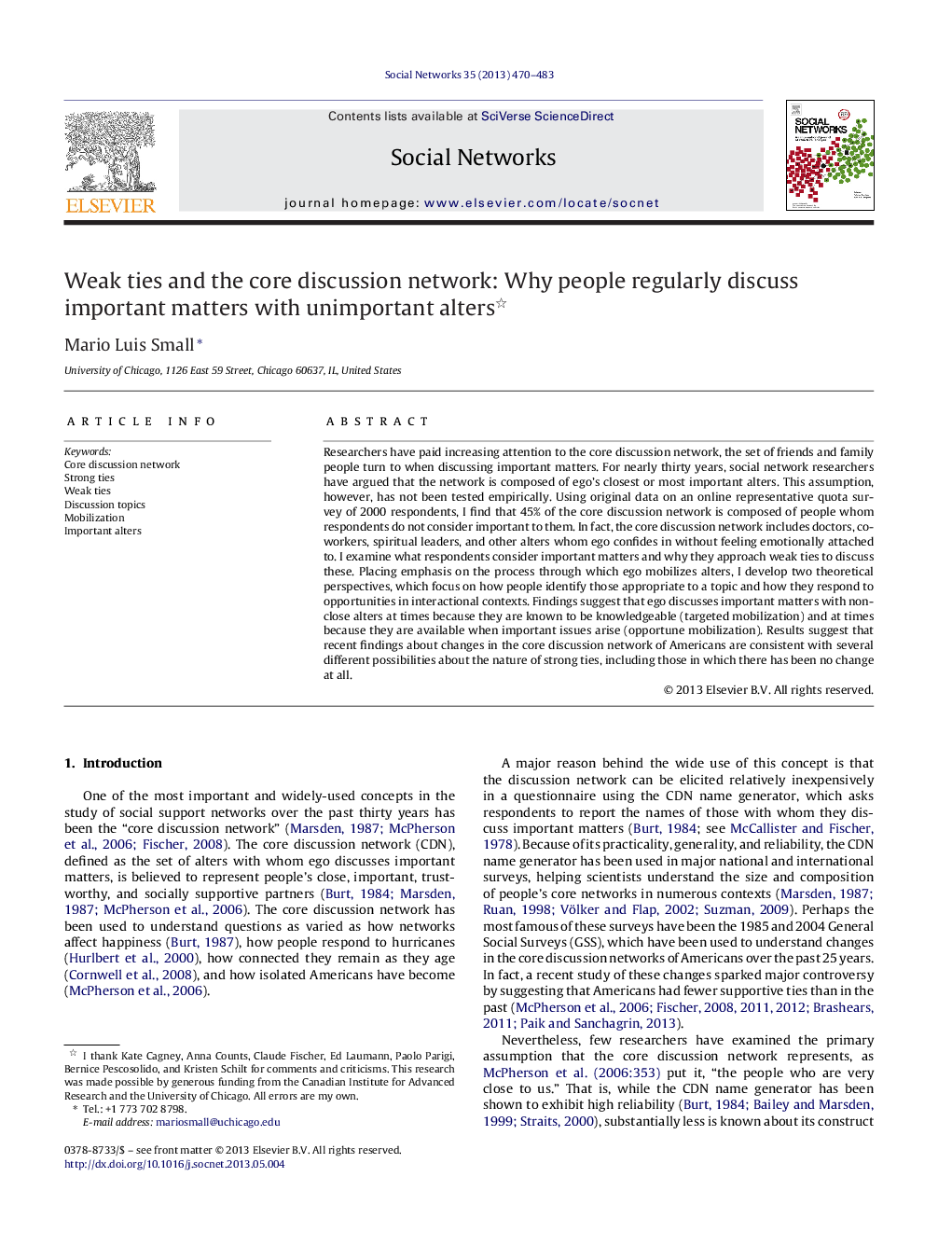| Article ID | Journal | Published Year | Pages | File Type |
|---|---|---|---|---|
| 1129232 | Social Networks | 2013 | 14 Pages |
•Study examined whether core discussion network is composed of respondents’ strong ties.•Nearly half of core discussion network composed of people respondents do not consider important to them.•Respondents strongly seek discussants who are relevant to topics they find important, even if the discussants are not close.•Respondents seek discussants who are available, even if the discussants are not close.
Researchers have paid increasing attention to the core discussion network, the set of friends and family people turn to when discussing important matters. For nearly thirty years, social network researchers have argued that the network is composed of ego's closest or most important alters. This assumption, however, has not been tested empirically. Using original data on an online representative quota survey of 2000 respondents, I find that 45% of the core discussion network is composed of people whom respondents do not consider important to them. In fact, the core discussion network includes doctors, co-workers, spiritual leaders, and other alters whom ego confides in without feeling emotionally attached to. I examine what respondents consider important matters and why they approach weak ties to discuss these. Placing emphasis on the process through which ego mobilizes alters, I develop two theoretical perspectives, which focus on how people identify those appropriate to a topic and how they respond to opportunities in interactional contexts. Findings suggest that ego discusses important matters with non-close alters at times because they are known to be knowledgeable (targeted mobilization) and at times because they are available when important issues arise (opportune mobilization). Results suggest that recent findings about changes in the core discussion network of Americans are consistent with several different possibilities about the nature of strong ties, including those in which there has been no change at all.
